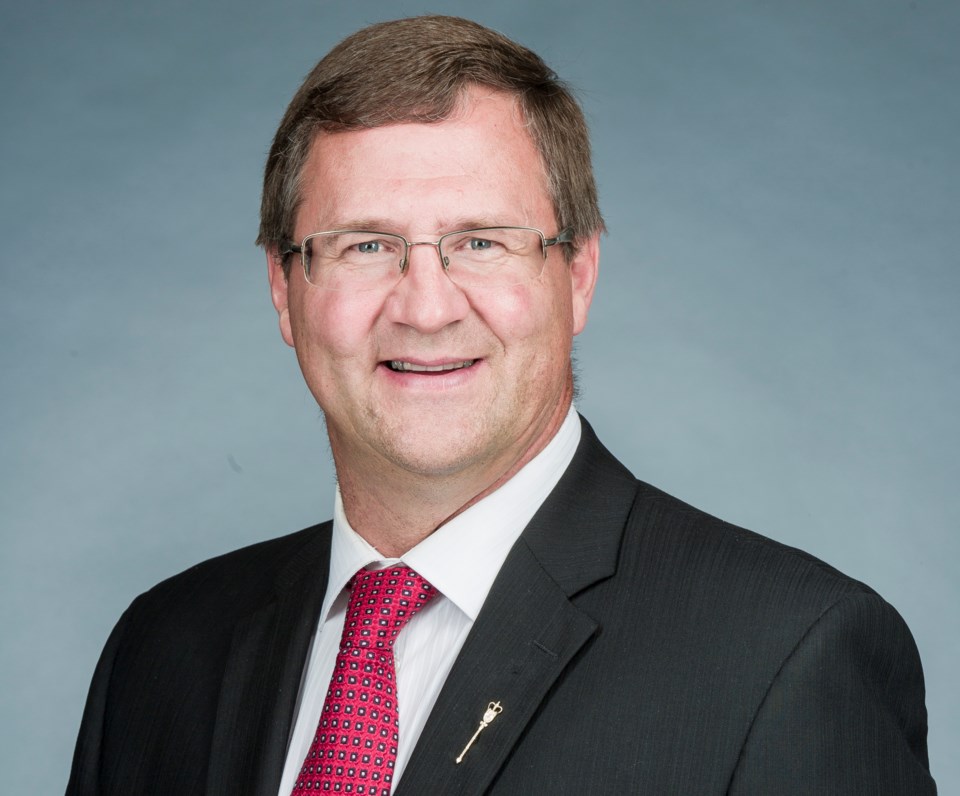BARRHEAD - Following the Supreme Court of Canada’s 6-3 decision last week that the federal carbon pricing law is constitutional, Athabasca-Barrhead-Westlock MLA Glenn van Dijken says he will not support the return of a “made-in-Alberta" carbon levy.
“The Liberal government is simply virtue signaling by adopting bad policy that will have no measurable impact on global emissions, but has the potential to do serious damage to the Canadian economy,” said van Dijken.
“Alberta has been a leader for decades in developing technology to both reduce and store emissions. Alberta’s Technology and Emissions Regulation (TIER) continues this research and development of effective technology. I support TIER as good and effective policy.”
On March 25, the Supreme Court of Canada handed down its final ruling on whether the Greenhouse Gas Pollution Pricing Act, which was passed by Parliament in 2018, was constitutional. (The court had heard arguments against the constitutionality of the Act in the fall but had held off until 2021 to issue a ruling.)
Alberta, Ontario and Saskatchewan had challenged the constitutionality of the Act in their respective jurisdictions, though only the Alberta Court of Appeal had ruled 4-1 that the federal government had no right to impose a carbon pricing scheme.
As noted in a summation of the ruling from the Supreme Court’s website, the majority of judges noted that national concern is a well-established but rarely applied doctrine of Canadian constitutional law.
While the application of this doctrine is limited to maintain the autonomy of the provinces, the federal government has the authority to act in appropriate cases when the matter is of genuine national concern.
Noting that all parties agreed that global climate change is real and poses a grave threat to the future of humanity, the majority of judges ruled that it is a matter of national concern under the “peace, order and good government” (POGG) clause of the Constitution.
Incidentally, the court also ruled that while the term “carbon tax” is also used to describe the pricing of carbon emissions, this has nothing to do with the concept of taxation as understood in a constitutional context and that they were valid regulatory charges.
It should be noted that three judges dissented from the decision and argued that the Greenhouse Gas Pollution Pricing Act was unconstitutional.
Following news of the ruling, Premier Jason Kenney said a majority of Albertans had elected the United Conservative Party (UCP) government because of its commitment to repealing the previous government’s carbon tax.
“We kept that commitment with our first law, Bill 1, the Carbon Tax Repeal Act, which we passed in May of 2019,” he said. “The federal government then stepped in and imposed their carbon tax on Albertans.”
Kenney said they are disappointed with the Supreme Court’s decision, adding that the majority of judges ignored the Alberta Court of Appeal’s warning and “discovered a new federal power that erodes provincial jurisdiction and undermines our constitutional system.”
When asked if he had heard from local residents who supported the Alberta government’s legal challenge, van Dijken said the majority of his constituents also supported the work the province is doing to achieve a fair deal for Alberta.
“Alberta wasn’t alone in this fight. We were joined by provinces in Canada representing 80 per cent of the Canadian population. We thank Ontario, Quebec, Saskatchewan, Manitoba and New Brunswick for standing with Alberta defending provincial rights.”
The prospect of establishing “made-in-Alberta" carbon pricing had been posed to Kenney at a press conference on March 25. Kenney said that they will listen to Albertans on what they want the UCP to do.
“While I don’t like the federal carbon tax, the truth is that it is, in one sense at least, less costly to Albertans than the Alberta NDP carbon tax,” he said. “That was partly designed to squeeze money out of taxpayers to spend on NDP pet projects, like subsidizing low-flow shower heads and light bulbs.”
Kenney also said the provincial government will do everything in its power to minimize costs on Albertans and on trade-exposed industries that must compete globally “while ensuring that we continue to responsibly reduce emissions in our province.”
When asked what that actually meant, van Dijken was somewhat vague in his reply, reiterating that the federal carbon levy disproportionately harms rural communities.
“I am very concerned with the impacts this carbon tax is having on our agriculture, energy and forestry industries, both now and in the future,” he said.
“My job is to protect Alberta taxpayers and jobs. I will do everything I can to protect my constituents from the harm inflicted on them by bad federal policy.”



